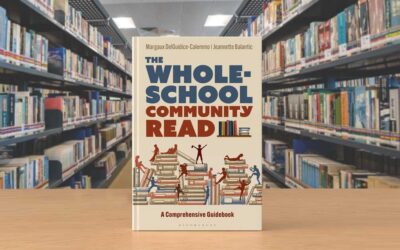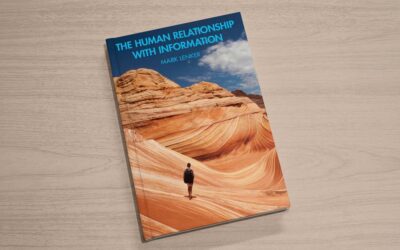Trends in Special Libraries: Insights from SLA President Tara Murray Grove
Lauren Hays
I recently had the pleasure of interviewing Tara Murray Grove, the current SLA President. Many of you will be interested in her thoughts on special libraries and the information she shared about the Special Libraries Association.
Lauren: Please describe your role at SLA.
Tara: I’m currently president of SLA. In this role, I work with many other leaders in the association and attend networking events and educational programs. This gives me a broad view of the profession and the kinds of work librarians and information professionals do around the world. SLA members work in corporations large and small, government agencies, nonprofits, academic institutions, and consulting practices. We have significant membership in North America, Europe, and Asia.
Lauren: What trends are you seeing in special libraries?
Tara: I’m seeing an expansion of the kinds of work special librarians and information professionals do, especially in terms of functional roles. These include digital asset management, taxonomy, data curation, and competitive intelligence, to name a few. Even librarians with more traditional job titles are changing the way they work, becoming embedded in projects, for example. Information work and expertise in organizations is not necessarily tied to a library space or information services department.
Lauren: How are those trends impacting the resources and services offered by special librarians?
Tara: As more databases and resources are available online with user-friendly interfaces, librarians no longer have to mediate access to physical collections or limited-access databases. Instead of managing access to limited information resources, we are now more often helping people make sense of overwhelming amounts of information and data. We are also more involved in the research process.
Lauren: How is SLA addressing those trends?
Tara: The easiest place to see this is in SLA’s educational offerings and conference sessions. They include topics such as copyright; competitive intelligence; leadership; diversity, equity, and inclusion; negotiation; and data management. We have also seen new communities form within SLA around topics such as data.
Lauren: What professional development do you recommend for special librarians?
Tara: It is important for special librarians to develop technical skills as well as subject expertise. SLA offers webinars, conference sessions, and certificate programs focused on technical skills. Many vendors also provide training that helps us become experts and provide support for researchers. For subject expertise, SLA offers a wide range of communities for subjects from biomedical information to the arts. Many of us have responsibility for multiple subject areas, or a subject area that we don’t have training or background in. These communities offer both learning opportunities as well as access to a network of subject specialists. In addition to professional development designed for information professionals, I also recommend that special librarians occasionally attend non-library conferences in their subject area or read the trade and professional publications their clients read.
Lauren: What professional development do you believe will be necessary in the next five years?
Tara: Specialized librarians need to stay current with our own profession as well as trends in our subject areas. We also need to learn how to tell compelling stories, to demonstrate the value that we bring to organizations. There is a return on investment (ROI) working group working on this right now in SLA.
Lauren: How is SLA addressing professional development needs?
Tara: Many of SLA’s professional development opportunities—including many of our conference sessions—are produced by our communities. These groups have a deep understanding of the needs and preferences of their communities, as well as direct connections to experts and industry partners. We also have association-wide programs like virtual roundtables, certificate courses, and of course, our annual conference, which will return to an in-person event in 2022.
Lauren: If you could describe SLA in three words what would those words be and why?
Tara: The three pillars of our current strategic plan are Learn, Connect, and Advance. These do a good job of describing SLA’s value to the profession. We provide opportunities to learn from each other and from outside experts in a variety of formats. We facilitate connections between information professionals, with students and educators, and with industry partners. We advance the profession by demonstrating the value information professionals bring to organizations and partnering with other organizations to advocate for our shared values.
Lauren Hays
Lauren Hays, PhD, is an Assistant Professor of Instructional Technology at the University of Central Missouri, and a frequent speaker on topics related to libraries and librarianship. Her professional interests include information literacy, educational technology, library and information science education, teacher identity, and academic development. Please read Lauren’s other posts about skills for special librarians. And take a look at Lucidea’s powerful integrated library systems, SydneyEnterprise, and GeniePlus, used daily by innovative special librarians in libraries of all types, sizes and budgets.
Similar Posts
Authors DelGuidice-Calemmo and Balantic on the Basics of Whole-School Community Reads for Librarians
In this interview, the co-authors of “The Whole-School Community Read” reflect on starting small, evolving the program, and building excitement.
3 Ways to Lead from Within the School Library
School librarians can lead from within their organization. Librarian Lauren Hays shares practical ways to identify tech gaps, support staff, and keep learning.
Interview with the Author: Mark Lenker on The Human Relationship with Information
An interview with librarian, philosopher, and author Mark Lenker on his series of short, reflective essays that explore information literacy through a philosophical lens.
An Interview with Author Barbara Band on Championing Your School Library
School library advocate Barbara Band shares guidance from her book on championing school libraries, including strategic advocacy, marketing, and demonstrating impact.




Leave a Comment
Comments are reviewed and must adhere to our comments policy.
0 Comments